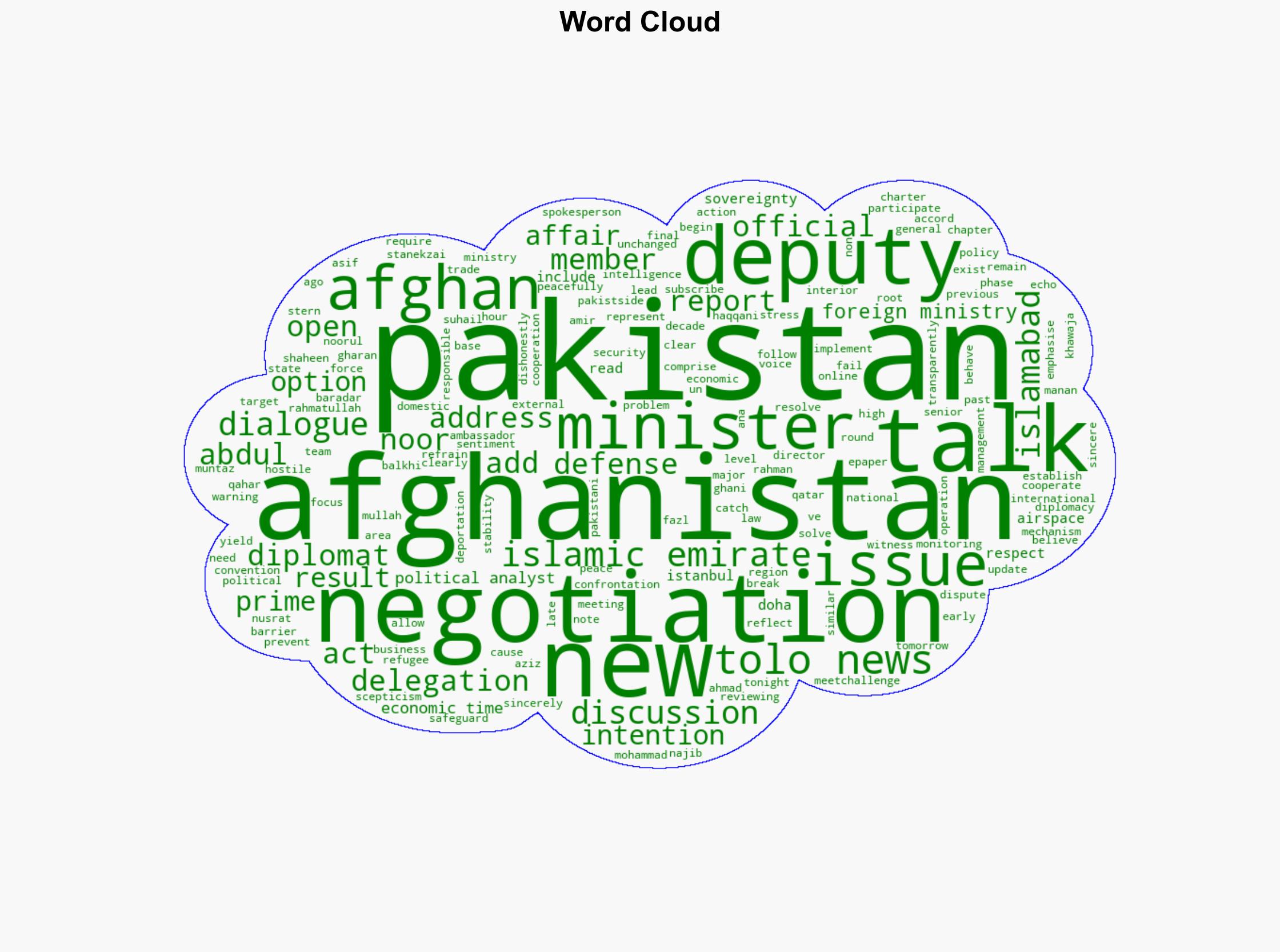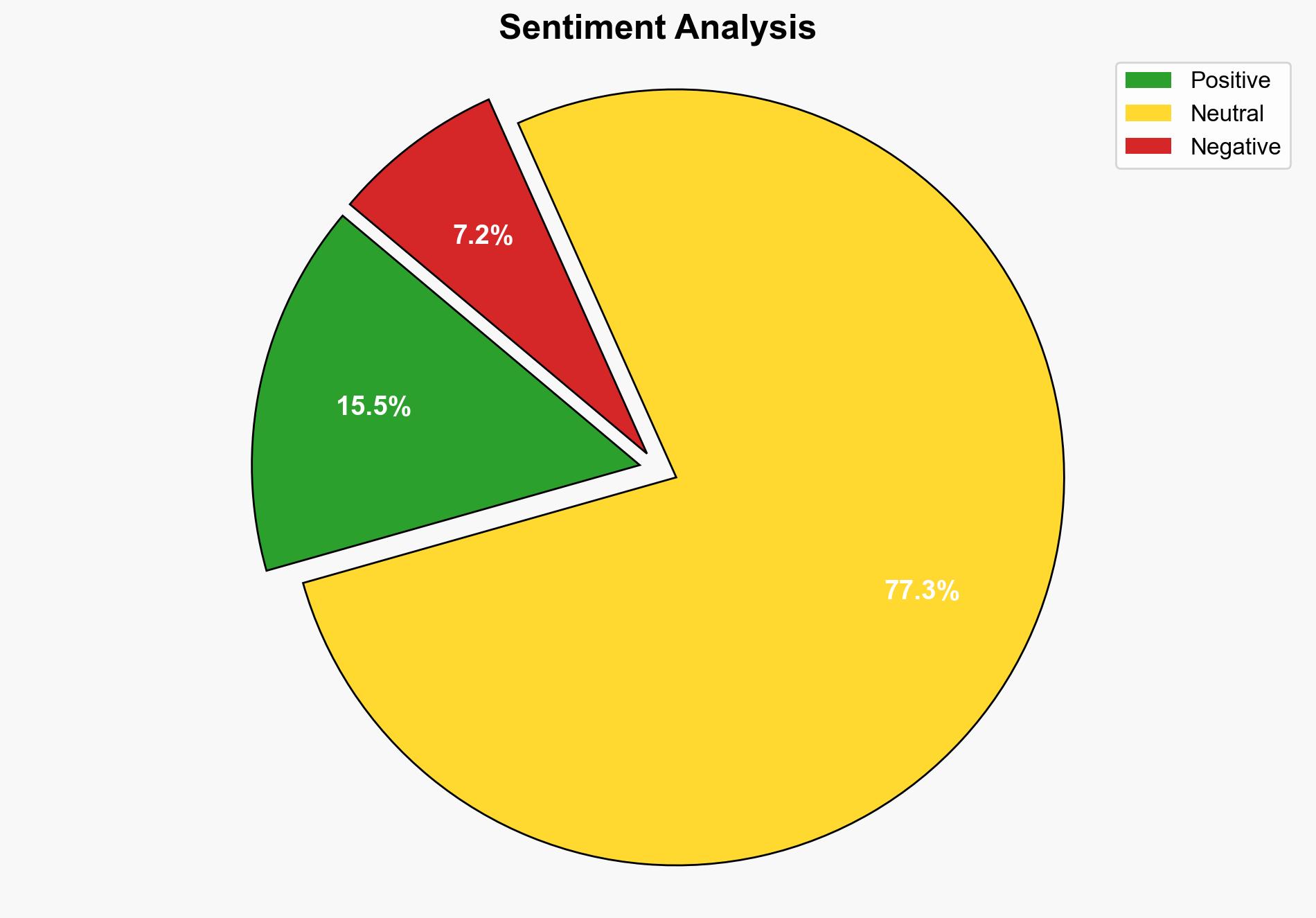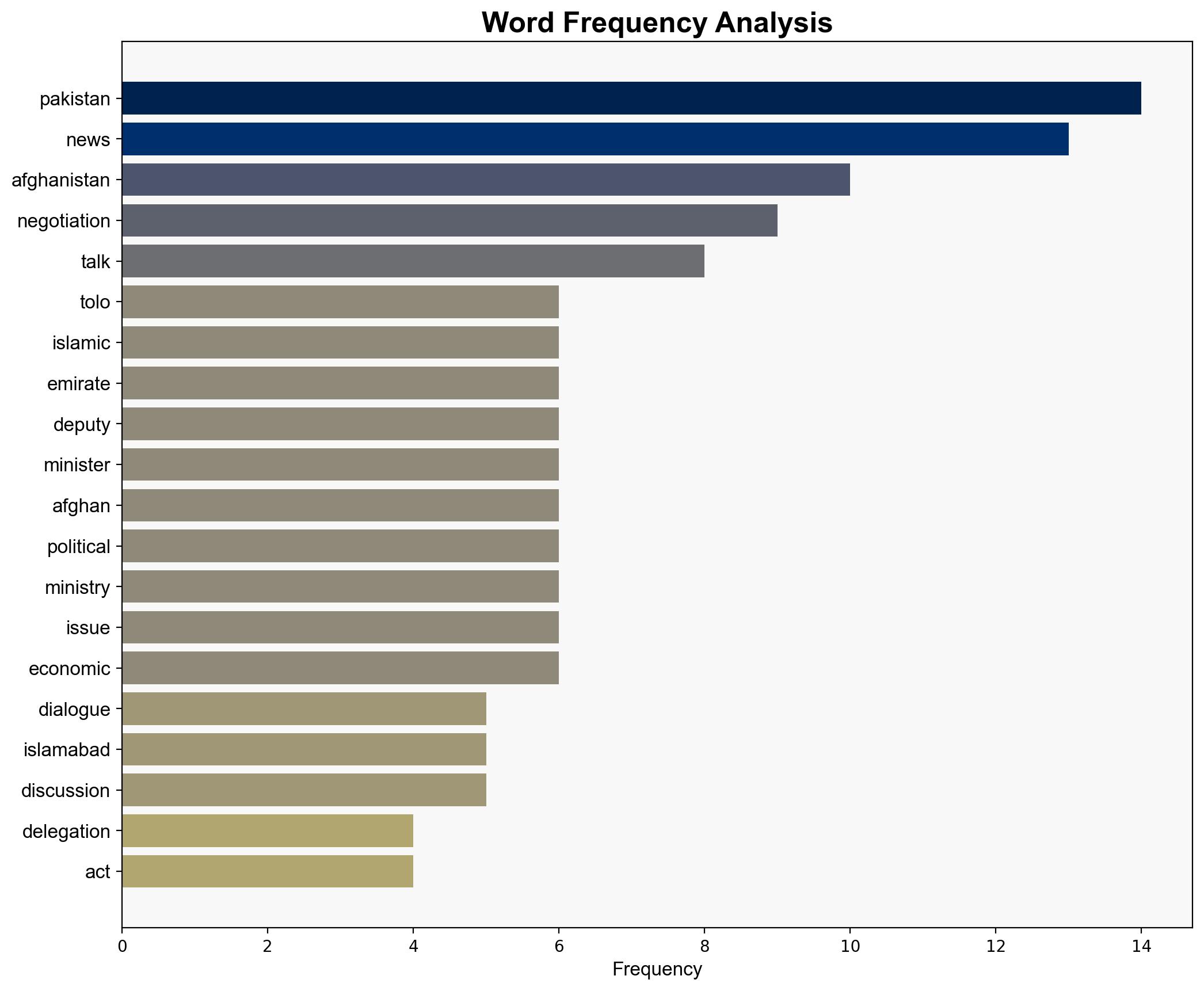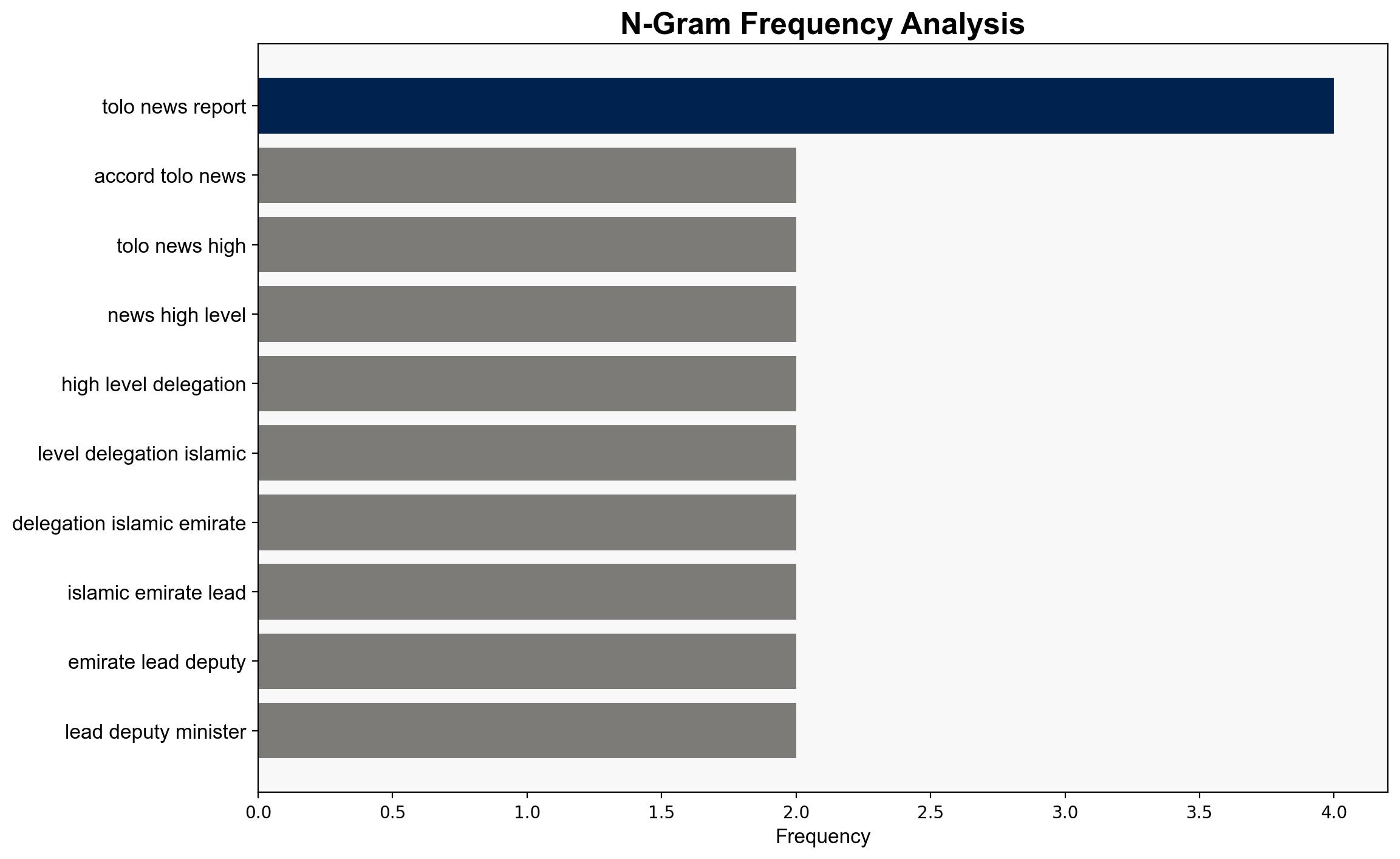Kabul-Islamabad talks begin in Istanbul focus on ceasefire and territorial integrity – The Times of India
Published on: 2025-10-26
Intelligence Report: Kabul-Islamabad talks begin in Istanbul focus on ceasefire and territorial integrity – The Times of India
1. BLUF (Bottom Line Up Front)
The Kabul-Islamabad talks in Istanbul are aimed at establishing a ceasefire and ensuring territorial integrity between Afghanistan and Pakistan. The most supported hypothesis is that these talks are a genuine attempt to resolve ongoing tensions, though skepticism remains due to historical distrust. Confidence level: Moderate. Recommended action: Monitor developments closely and engage in diplomatic support to encourage transparency and trust-building measures.
2. Competing Hypotheses
1. **Genuine Diplomatic Effort**: The talks represent a sincere attempt by both Afghanistan and Pakistan to address security concerns and territorial disputes through diplomacy, as evidenced by high-level delegations and a focus on international conventions.
2. **Strategic Posturing**: The talks are primarily a strategic maneuver by both parties to gain international favor and buy time, without any real intention of resolving underlying issues, as suggested by historical patterns of distrust and lack of transparency.
3. Key Assumptions and Red Flags
– **Assumptions**:
– Both parties are willing to compromise and adhere to international norms.
– The presence of high-level officials indicates a commitment to the process.
– **Red Flags**:
– Historical distrust between the parties, highlighted by Afghan diplomat Amir Mohammad Gharan’s skepticism.
– The potential for talks to be used as a delay tactic, as past negotiations have not yielded lasting results.
– The stern warning from Pakistan’s defense minister suggests a lack of consensus on peaceful resolution.
4. Implications and Strategic Risks
– **Patterns**: Continued dialogue could lead to improved relations if trust is established. However, failure could exacerbate tensions.
– **Cascading Threats**: Breakdown in talks may lead to increased border skirmishes and destabilization in the region.
– **Economic and Geopolitical Dimensions**: Prolonged instability could impact regional trade and international relations, particularly with neighboring countries and global powers.
5. Recommendations and Outlook
- Encourage third-party mediation to facilitate trust-building and transparency.
- Develop confidence-building measures, such as joint monitoring mechanisms, to ensure compliance with agreements.
- Scenario Projections:
– **Best Case**: Successful talks lead to a sustainable ceasefire and improved bilateral relations.
– **Worst Case**: Talks collapse, leading to heightened military conflict and regional instability.
– **Most Likely**: Incremental progress with ongoing challenges due to deep-rooted distrust.
6. Key Individuals and Entities
– Rahmatullah Najib
– Suhail Shaheen
– Ana Haqqani
– Noor Ahmad Noor
– Noorul Rahman Nusrat
– Abdul Qahar Balkhi
– Aziz Stanekzai
– Fazl Manan Muntaz
– Khawaja Asif
– Amir Mohammad Gharan
7. Thematic Tags
national security threats, regional diplomacy, conflict resolution, Afghanistan-Pakistan relations




